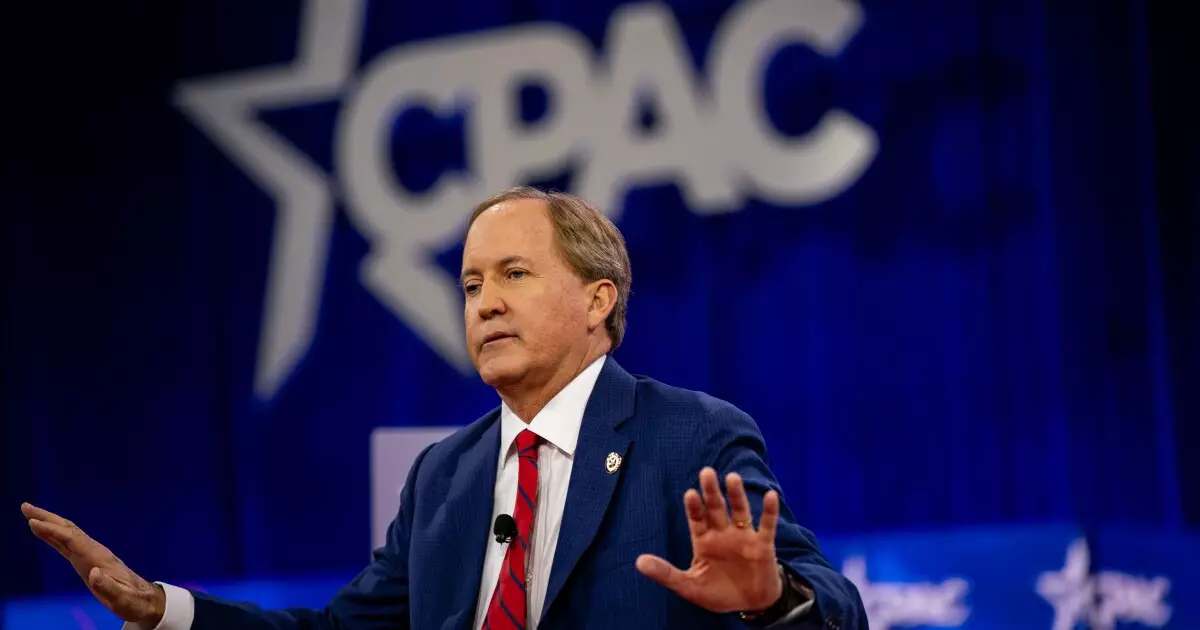Texas Attorney General Ken Paxton recently concluded a thorough 14-month investigation into Wells Fargo, a move that initially hinted at potential consequences including a halt on the bank’s ability to underwrite governmental bonds in the state. This scrutiny emerged following the bank’s withdrawal from the Net-Zero Banking Alliance (NZBA), an initiative designed to steer financial institutions toward a pledge of reaching net-zero greenhouse gas emissions by 2050. Such regulatory actions are set against the backdrop of a pivotal Texas law enacted in 2021, which stipulates that state entities cannot engage in contracts exceeding $100,000 with firms that are perceived to boycott the fossil fuel sector.
This examination of Wells Fargo was part of a broader review that also considered substantial firms like Bank of America, JP Morgan, and Morgan Stanley, among others. The attorney general’s office is framing these actions within the larger narrative of Texas’s opposition to policies that could be construed as unfavorably targeting its oil and gas industries.
In a public statement, Paxton lauded Wells Fargo for its decision to sever ties with the NZBA, framing it as a favorable shift for the state’s economic interests. “Today, Wells Fargo took a step in the right direction by officially ending their affiliation with NZBA, and Texas welcomes them to continue doing business with our great state,” he remarked. This appeal to economic nationalism and state pride underscores a significant ideological divide within the dialogue surrounding environmental, social, and governance (ESG) notations.
Despite the positive reception from Texas officials, Wells Fargo’s official communication regarding its exit from the NZBA was deliberately limited in scope, focusing solely on the termination of its membership without elaboration on the implications or rationale behind this decision. This lack of transparency might fuel skepticism regarding the bank’s commitment to sustainable practices, especially in light of ongoing litigation challenging the constitutionality of the Texas law that governs these sanctions.
The Weiss Factor Group, representing multiple financial firms, is actively contesting the enforceability of the anti-boycott law. This legal challenge reflects a growing tension between state policies aimed at protecting the fossil fuel industry and the ethical frameworks many banks are striving to uphold. Given that Wells Fargo has managed to secure significant underwriting roles while undergoing this review, the implications of Paxton’s investigation extend beyond just Wells Fargo.
The situation raises challenging questions for other financial institutions operating in Texas. Will the pressure from the state compel them to abandon or alter their ESG strategies, particularly regarding fossil fuel investment? Given the critical role that financial firms play in providing capital for major infrastructure projects, the outcome of these reviews and any potential lawsuits could reshape the relationship between corporate governance and state legislative frameworks.
Despite undergoing scrutiny, Wells Fargo has maintained a strong presence in Texas’s bond market. During the review period, the bank has participated as a senior underwriter in several vital bond transactions, including significant offerings for major entities such as the Dallas Fort Worth International Airport and the Texas Transportation Commission. These transactions illustrate Wells Fargo’s ability to remain integrally involved in Texas’s financial landscape while also grappling with state-level political pressures.
Additionally, it is essential to recognize the broader trend of anti-ESG legislation proliferating in various states. Texas is among the pioneers of this movement, which has included measures targeting perceived discrimination against the firearm industry. Such legislative tracks evoke concerns about the potential long-term ramifications for corporate behavior and ethical governance in the financial sector.
Wells Fargo’s withdrawal from the Net-Zero Banking Alliance and the subsequent conclusion of the attorney general’s review reflect a complex interplay between financial practices, state governance, and national ESG strategies. While the immediate outcome appears favorable for Wells Fargo, the continued evolution of these dynamics will likely prompt further scrutiny from regulators and civic groups alike. As the discourse surrounding sustainability and economic interests intensifies, both financial institutions and policymakers will need to navigate their strategies thoughtfully, factoring in the legal, ethical, and environmental implications of their choices moving forward.

